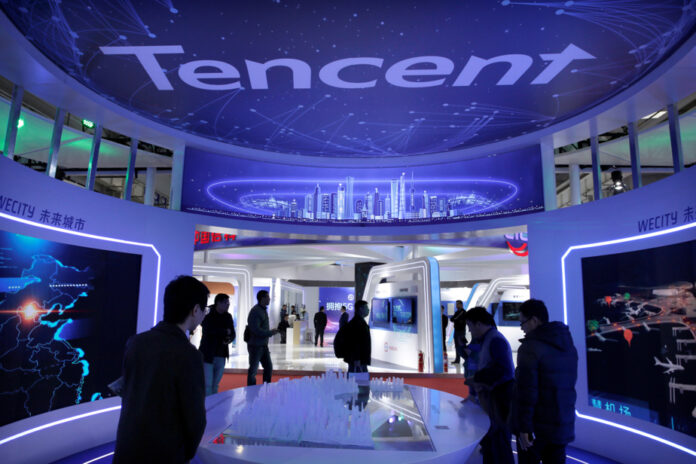(Beijing) Tencent’s net profit accelerated sharply in the second quarter, but the Chinese internet giant’s sales disappointed, as an upturn seems to be taking shape in China for the digital giants.
After years of dazzling growth, the tech sector has experienced in recent years a brutal takeover by the authorities to further regulate it. It had weighed heavily on Tencent’s profitability last year.
This turn of the screw has caused the loss of billions of dollars in market capitalization since 2020 and has weighed on the results of powerful internet companies.
A year ago, Tencent announced the first decline in quarterly revenue since going public in 2004.
After having abused it, the Chinese government has reaffirmed its support in recent weeks for this key sector, at a time when the economy is under pressure.
Against this backdrop, Tencent reported net profit of 26.17 billion yuan ($4.9 billion) in the second quarter, up 41% year on year.
This is its fastest pace of progress since 2021.
A sham performance, because last year in the second quarter the confinement of the economic capital Shanghai and the turn of the screw targeting tech had strongly penalized the profit of Tencent.
From one quarter to the next, it only increased by 1%.
Its turnover is up 11% year on year, to 149.2 billion yuan ($27.6 billion) for the April-June period.
But it is down from the previous quarter (-1%) and below the forecasts of analysts polled by the Bloomberg agency, who expected 152 billion yuan.
Like other digital giants, Tencent has not been spared from the tightening regulations in China.
A must for payments via its WeChat messaging app, the group was fined nearly 3 billion yuan (about $558 million) last month for various breaches of banking regulations.
This condemnation announced the same day as that of its competitor Ant Group (owner of the Alipay system) seems since to have marked the epilogue of the troubles of the sector.
Last month, Chinese Premier Li Qiang received representatives from several tech companies to “listen” to their opinions and suggestions.
Since last year, Tencent has again obtained video game licenses in China after a year and a half of hiatus, which had weighed heavily on its turnover.
These authorizations are mandatory to market a game on the world’s largest market.
Tencent has since been looking for more opportunities abroad, particularly in Europe where the firm is strengthening itself with equity investments in emblematic studios.
Last year, the group had formalized an increase in the capital of the French giant Ubisoft.
Also present in artificial intelligence, Tencent has on the other hand said nothing about its progress to design in China an equivalent to ChatGPT, the American conversational robot doped with artificial intelligence whose prowess is followed with passion.















